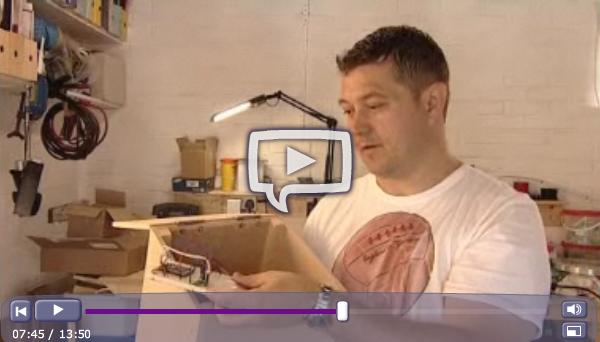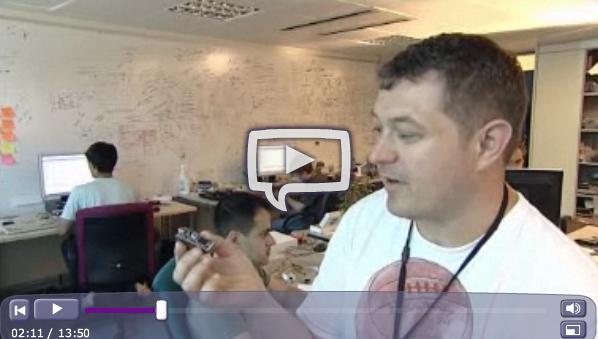Chris is on TV!
If anyone was watching sky channel 880 last night at around 10.15, you'd have seen Chris in his garage with a big wooden box and an mbed.
But why? Well, a team from "Teachers TV" asked to come to film him doing some of his activities as a "STEM Ambassador"; someone who goes out and helps with Science, Technology, Engineering, Maths in schools. The result is a 15 min video which shows some experiments going on during a visit to a local school.
It should be no surprise that it was based around using mbed, but it was a great reminder of what triggered mbed in the first place. It was many moons ago that we were trying to do the same thing in the schools with "traditional" kit, and getting very frustrated (as were the kids); it got in the way of their ideas. It was the classic scratch your own itch scenario, with us thinking "it could be so much better!".
Interestingly, the best decision I think we ever made in tackling this problem was not to go and build something specifically for taught education. We decided to try and make something that solved the problems we were seeing, but where it was a generic problem that was applicable to anyone trying to prototype something. The position we took was particularly inspired by the books "Deschooling Society" (Ivan Illich, 1971) which was a great reminder that people should always be learning (i.e. not just in taught environments), and "The Paradox of Choice" (Barry Schwartz, 2004), explaining how a lot of complexity can be attributed to choice paralysis/overload. My own interpretation of this is that it is common to pass on decisions to users in the form of "options", where infact you are actually passing on complexity and hard decisions. Finally, we wanted to ensure we could make it commercially viable so it could support continuous investment in itself.
As and example of how these school visits impacted our thinking, I can remember one day going in to a school and seeing their electronics lesson (I wish I had a photo!); they were soldering leaded components to copper tape stuck on to cardboard. I couldn't even do that; you need three hands! Worse still, as you apply the heat, the glue on the copper tape melts and peels of the card! I'm sure there were good reasons, but at some level you have to ask yourself why industry doesn't do it like that?!
It was things like this that focused us on wanting to make industry-style tools more accessible; using C/C++ rather than dreaming up some graphical flowchart programming to "make it easy", or using 0.1" pitch rather than a simple (but ultimately restrictive) "modular system".
The great thing about this video was it reminded us we'd been able to come full circle, and apply mbed back to what originally inspired us. What started as a little skunk-works project is now a real product, and we're hoping to continually improve on it to help more people experiment with microcontrollers. Whilst taught education is certainly not our primary focus, we hope mbed will find a home with some people who want to apply it to let students explore these sorts of things.
And don't worry if you missed it! It is now published on Teachers TV, so go check it out! You even get to see the mbed HQ white board in the background at one point :)
You need to log in to post a comment


